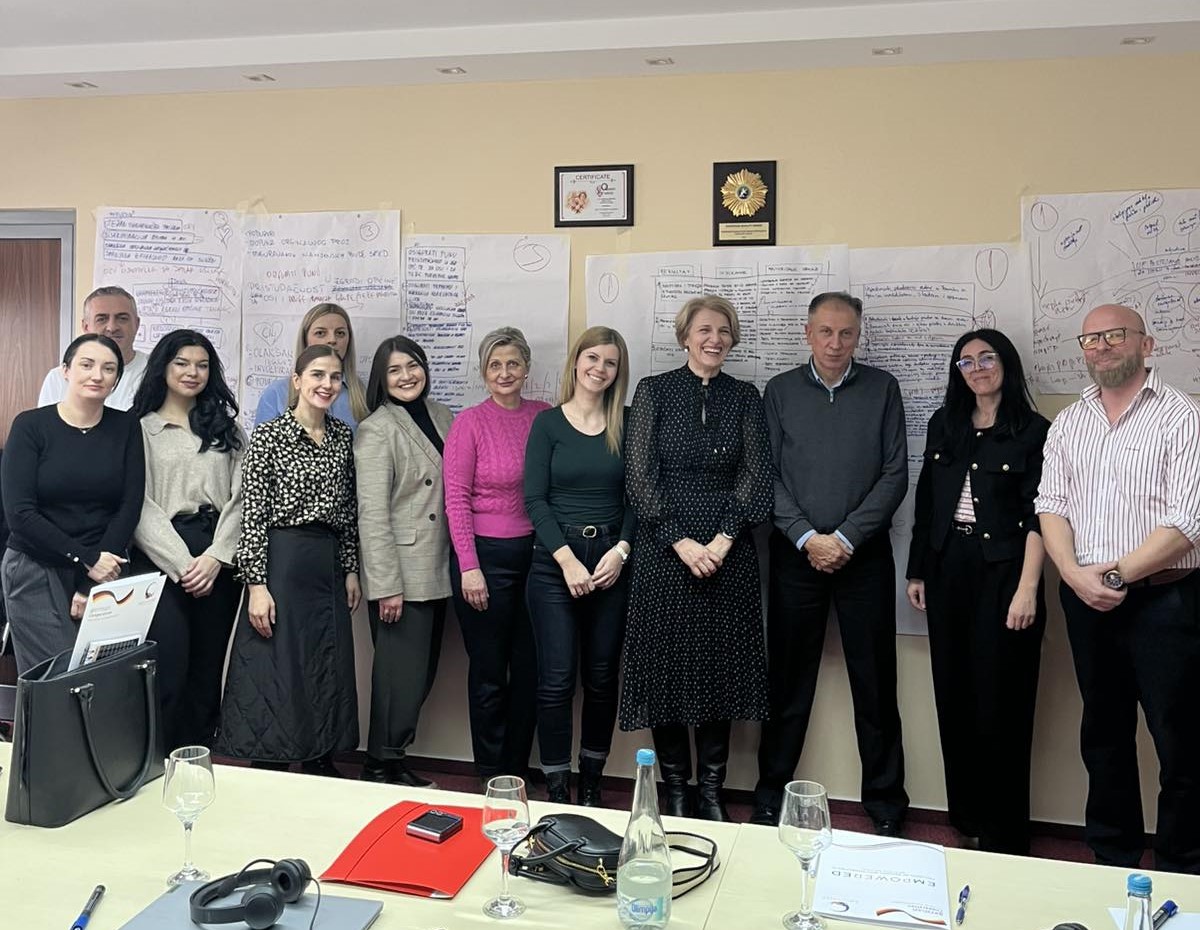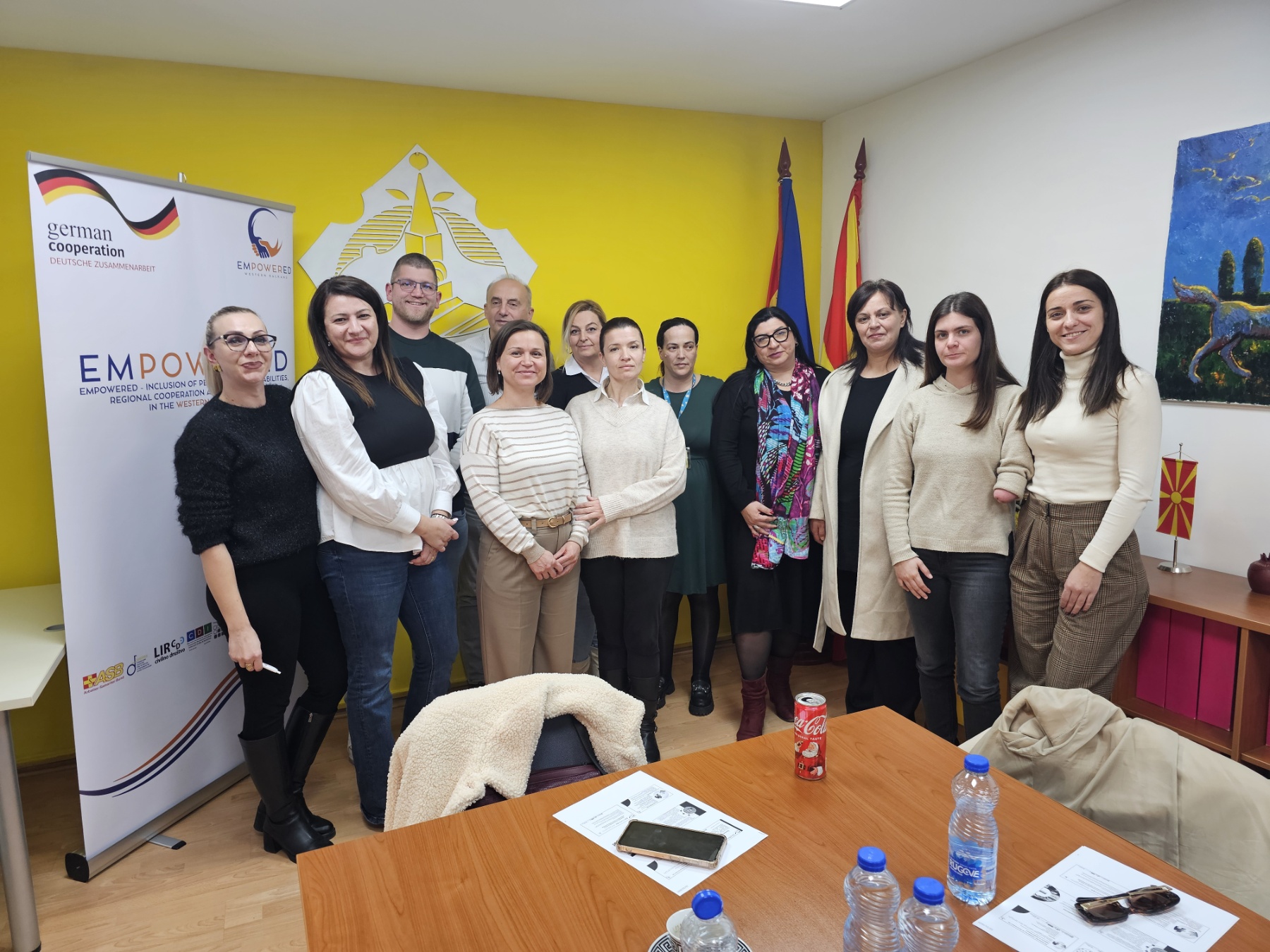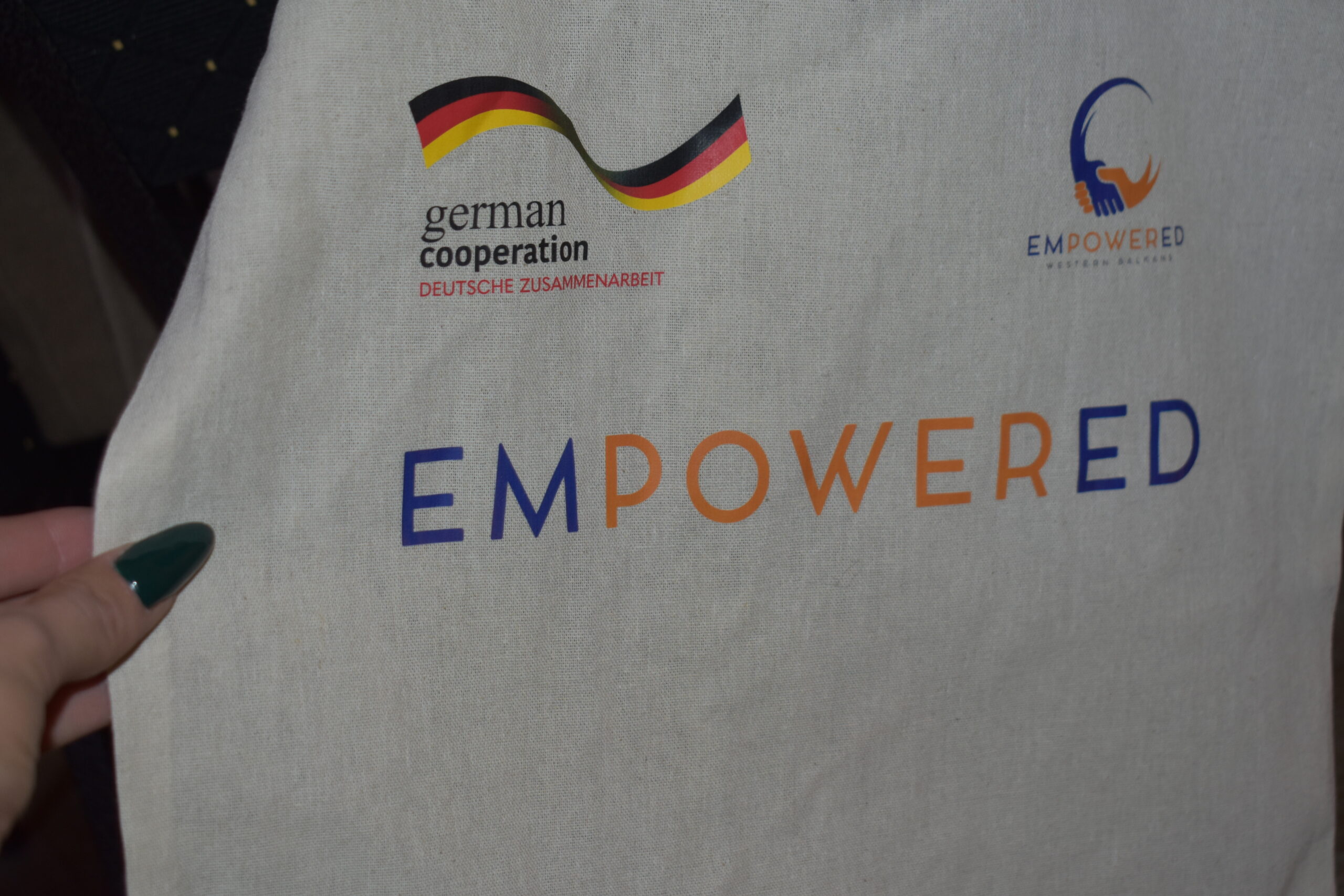Publications
Sarajevo Trilateral Conference: Empowering Inclusion of Persons with Disabilities in the Western Balkans
The Sarajevo Trilateral Conference, held on 10/22/2025, marked a pivotal moment in the ongoing effort to foster inclusion of Persons with Disabilities (PwDs) across the Western Balkans. Organized under the “Empowered = Inclusion of persons with disabilities (PwDs), regional cooperation and development in the Western Balkans” project, the conference brought together over 70 representatives from ministries, institutions, local governments, associations, and PwDs from Bosnia and Herzegovina, Serbia, and Montenegro.
This vital platform served to strengthen regional responsibility for supporting people with disabilities at all levels, underscoring a shared commitment to creating more inclusive and equitable societies. The conference discussions built upon years of work in the region and resulted in key recommendations designed to advance the rights and well-being of PwDs.
As Minister Sevlid Hurtić aptly stated, “The inclusion of persons with disabilities is not a local, but a regional and universal theme… cooperation among the countries of the Western Balkans is not an option, it is our shared responsibility.”
Key Recommendations from the Sarajevo Trilateral Conference: Empowered_Key recommendations from the Sarajevo Trilateral conference
_______________________________
Empowered Newsletter #1
We are pleased to present the first issue of the Empowered Newsletter, offering an overview of activities and achievements since the start of the project.
In the opening section, the newsletter highlights the broader context and challenges of disability inclusion in the Western Balkans. Although most countries in the region have ratified the UN Convention on the Rights of Persons with Disabilities (CRPD) and are moving closer to EU standards, persons with disabilities still face significant barriers in everyday life. Employment rates remain far below the general population, access to inclusive education is uneven, and local governments often lack resources and expertise to design sustainable inclusion policies.
Against this backdrop, the Empowered project seeks to bring global standards into practice at the regional and local levels – through partnerships, capacity building, and concrete actions that strengthen the rights, employability, and social inclusion of persons with disabilities.
Inside the newsletter, you will also find:
information on established partnerships and the work of local inclusion groups,
insights into regional events and initiatives,
examples of concrete results on the ground.
👉 Download the first newsletter Empowered Newsletter #1
_____________________
Catalogue of positive actions to encourage the hiring of persons with disabilities and combating stereotypes
To encourage the employment of persons with disabilities and break down stereotypes in the labor market, the European Commission has prepared a Catalogue of Positive Actions. This document provides an overview of successful measures and good practices from across Europe – from subsidies and tax incentives for employers, to training and advisory support, as well as initiatives that promote an inclusive work culture.
The handbook is intended for employers, institutions, and organizations that want to strengthen inclusion in employment, but also for anyone seeking inspiration on how to make workplaces accessible and fair for all.
📘 Download the handbook here: catalogue of positive actions to encourage the hiring-KE0323375ENN
_________________
United Nations Convention on the Rights of Persons with Disabilities (CRPD)
The United Nations Convention on the Rights of Persons with Disabilities (CRPD), adopted in 2006, is a milestone international treaty that redefines the global approach to disability through a human rights lens. It establishes that persons with disabilities are entitled to the full and equal enjoyment of all human rights and fundamental freedoms, and that disability results from the interaction between impairments and societal barriers.
Grounded in principles such as dignity, autonomy, non-discrimination, participation, and accessibility, the Convention provides a comprehensive legal and policy framework for states to protect and promote the rights of persons with disabilities. It covers all key areas of life – from education, employment, and healthcare, to independent living, political participation, and access to justice.
The CRPD also introduces strong accountability mechanisms, requiring states to adopt and implement legislation, remove barriers, and involve persons with disabilities in decision-making processes. Through its Optional Protocol, it offers an avenue for individuals to seek recourse at the international level when their rights are violated.
By ratifying the Convention, countries commit to transforming principles into action, ensuring that inclusion, equality, and respect for diversity become tangible realities in communities worldwide.
Download document:
United Nations (UN) Convention on the Rights of Persons with Disabilities (2006)
___________________
Union of Equality: Strategy for the Rights of Persons with Disabilities 2021–2030
Union of Equality: Strategy for the Rights of Persons with Disabilities 2021–2030 is a key strategic document of the European Commission, setting out a comprehensive framework for improving the rights and position of persons with disabilities in the EU and partner countries. Building on the European Pillar of Social Rights and implementing the UN Convention on the Rights of Persons with Disabilities (UNCRPD), the strategy defines nine priority areas for action.
The document emphasizes the need to remove physical, communication, and digital barriers, improve access to education, employment, and healthcare, and strengthen the political and social participation of persons with disabilities. Special attention is given to the equal participation of women and girls with disabilities, the accessibility of new technologies, and empowerment through independent living in the community.
This strategy provides clear guidance for Member States, local authorities, and civil society, with defined monitoring and reporting mechanisms. The goal is to turn existing policies into concrete measures that bring tangible changes to people’s lives—both within the European Union and in countries striving to meet its standards.
Download document:
Union of Equality: Strategy for the Rights of Persons with Disabilities 2021–2030
_____________________
UN Standard Rules on the Equalization of Opportunities for Persons with Disabilities (1993)
Adopted by the United Nations General Assembly in 1993, the Standard Rules serve as a comprehensive framework for guiding governments in ensuring the full participation and equality of persons with disabilities. Built on the principles of the Universal Declaration of Human Rights, key UN conventions, and the World Programme of Action concerning Disabled Persons, the Rules outline practical measures to remove societal barriers and promote inclusion in all aspects of life.
Although not legally binding, the Rules carry strong moral and political weight. They provide detailed guidance across critical areas such as accessibility, education, employment, healthcare, social security, cultural participation, and political engagement. They also emphasize the active involvement of persons with disabilities and their representative organizations in policy-making, implementation, and monitoring processes.
By adopting these Rules, states commit to embedding disability rights into national policies, coordinating across sectors, and engaging in international cooperation to achieve equal opportunities. The framework remains a foundational reference for aligning national strategies with global human rights standards and fostering inclusive societies worldwide.
____________________
The Washington Group Short Set of Questions on Disability (WG-SS)










